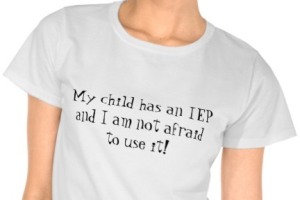Creating dependencies on others to do what all parents are capable of doing for themselves is such a disservice to families. Is the person calling themselves a parent advocate qualified to act on behalf of others?
 Everyone should be an advocate for children but representing families requires a totally different set of skills, training and expertise. Not being qualified to do so leads to the passing on of incorrect or incomplete information to others and can often cause harm by delaying an outcome required by a set process or being totally useless to achieve a needed service. What advocates do and how they do it directly impacts the lives of families. These well-meaning efforts to help others can often cause more harm than they do good. It is not enough to apply procedural process but often how it is done that can also have an equal impact on outcomes.
Everyone should be an advocate for children but representing families requires a totally different set of skills, training and expertise. Not being qualified to do so leads to the passing on of incorrect or incomplete information to others and can often cause harm by delaying an outcome required by a set process or being totally useless to achieve a needed service. What advocates do and how they do it directly impacts the lives of families. These well-meaning efforts to help others can often cause more harm than they do good. It is not enough to apply procedural process but often how it is done that can also have an equal impact on outcomes.
Looking at the broader impact can temper how we react to those we are seeking services from. One of the most valuable lessons taught me by my mentor was that in any form of debate always allow your opponent the ability to save face. It is difficult during emotionally charged confrontations not to want to punish the opponent when prevailing. You will find yourself interacting with the same entities at another date so it is always best not to close doors that you have a need to pass through again.
What qualifies a person to be an advocate and act on behalf of others, sometimes requesting fees to do so? Unfortunately there is no requirement of certification beyond that person’s self-proclaimed proficiency which most often is only that they too are a parent of a child with a disability. This can often lead to the assumption that a practice that works with one child with a particular disability will work with all children with the same disability. No two children are alike and the reason the IEP is individualized in the first place. Based on their personal experience and previous interaction they may also bring negative history and adversarial working relationships with the team of individuals that will eventually, after all is said and done, be working with you to serve your child.
Over the course of my career teaching parents self-advocacy skills, I was always quick to point out that you need to become your child’s advocate because only you know what is best for your child as only you know your child best.
There is nothing special about advocates beyond the time they took to learn procedural process, and their personal experience utilizing it. I have taught thousands of parents that process so I know that the majority of parents can learn to become effective advocates. I have encountered only a minuscule group, in decades of teaching, that for some reason were incapable of doing this for themselves. It is not as difficult as most would have you believe it is. Learn to do the drill, the same repetitive procedural process once identified as eligible from age three until your child exits with a standard diploma or ages out at twenty two, regardless of what type of disability a child has.
I believe there needs to be some type of required national certification established for paid  disability advocates and certainly recommended for those who don’t charge. This would require an initial certification and periodic re-certification to retain an endorsement. I think if done properly it would give families access to quality representation resulting in better outcomes and reduction in school /parent conflicts. Perhaps a group like Council of Parent Attorneys and Advocates (COPAA) or Parent Centers (Parent Center Network) could establish the levels of certification.
disability advocates and certainly recommended for those who don’t charge. This would require an initial certification and periodic re-certification to retain an endorsement. I think if done properly it would give families access to quality representation resulting in better outcomes and reduction in school /parent conflicts. Perhaps a group like Council of Parent Attorneys and Advocates (COPAA) or Parent Centers (Parent Center Network) could establish the levels of certification.
When it comes to representation of others being an income, there is a fine line to be walked as to who’s benefitting from continued conflict and are they really acting as an attorney.
I do understand the need is greater than the resource when it comes to helping parents but buyer beware as that service can also harm your child and you as parents. The best thing to do is to learn the procedural process and become that advocate yourself. Not only will this allow you to act on your child’s behalf without requiring anyone else to do it, but it will also give you the skills necessary to teach your child how to be their own advocate when that time comes.
 This is why when asked “where can I find an advocate for my child”, my response will always be “find the closest mirror and have a good look” one else to do it, but will also give you the skills necessary to teach your child how to be their own advocate when that time comes.
This is why when asked “where can I find an advocate for my child”, my response will always be “find the closest mirror and have a good look” one else to do it, but will also give you the skills necessary to teach your child how to be their own advocate when that time comes.

I so agree!! Never in a million years would I think I would be faced with a path such as the one I began 18 years ago. The key was becoming an informed parent because I had no knowledge of ESE or FAPE. Now I can say I educated myself and I am my child’s greatest advocate. It was not a cake walk to say the least and I did cry and I did feel like I was facing the biggest Giant ever by myself but I learned that Giant still had to wake up each day and get dressed and do all the same things I had to do. The difference between me and the giant was I still had room to grow and learn.
I have been a member of COPAA for years now it is a wonderful resource.
Reblogged this on Children's Rights.
If some one wants expert view concerning blogging then i suggest him/her to pay a quick visit
this webpage, Keeep up the nice work.